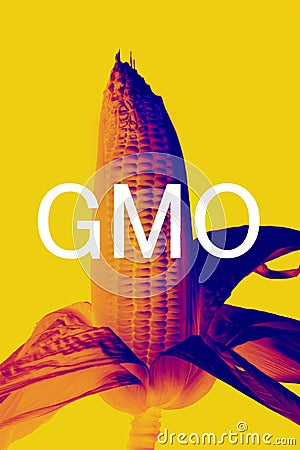By Sarah A LoBisco, ND

Since 2009, I’ve been discussing the impact of GMOs in our food supply. According to the Institute for Responsible Technology, by definition,
A GMO (genetically modified organism) is the result of a laboratory process of taking genes from one species and inserting them into another in an attempt to obtain a desired trait or characteristic, hence they are also known as transgenic organisms. This process may be called either Genetic Engineering (GE) or Genetic Modification (GM); they are one and the same.
This process of inserting genes from one species into another has caused many to be leery of the negative biological results. Furthermore, the unintended downstream effects of potential errors during this genetic insertion process have resulted in many physicians raising their eyebrows in concern.
According to an article in Huffington Post:
GMOs are made much the same way many new drugs are developed: Foreign DNA is inserted into the plant genome to give it different characteristics, similar to adding a new chemical group onto an existing molecule to create a new drug. But while drugs must undergo rigorous testing, GMOs in comparison essentially receive a free pass. A number of independent studies are emerging, however, exposing the reality that there are potential dangers. Here are several examples:
- An animal study published in 2009 clearly showed the harmful effects of three types of GM corn, particularly on kidney and liver function.
- A recent European Food Safety Authority study discovered portions of a virus gene in many GMO varieties. Some are concerned that this gene might make these GMOs unsafe.
- One of the “selling points” for GMO crops is that they require fewer pesticides, as pesticides are incorporated into the plant genome. But those protections are apparently wearing off. Researchers at Iowa State University have found that corn rootworms have adapted to GMO corn, forcing farmers to increase their pesticide use, which has significant impacts on human health and the environment.
- Another issue is Roundup, the world’s most popular herbicide, also made by Monsanto. Again, it’s no coincidence that many GMO crops are designed to withstand higher doses of Roundup. However, recent research has shown that glyphosate, the active ingredient in Roundup, may cause a number of diseases, including cancer and Parkinson’s disease.
- Other animal studies have also shown a variety of dangers. GMO crops, particularly soy and corn, have been found to affect fertility, immunity, allergies, and birth weight, in addition to accelerating aging and causing cancer
If GMOs were strictly a health issue, perhaps we would heed the American Academy of Environmental Medicine’s (AAEM) warning that urges us to start protecting ourselves from GMOs. This especially pertains to our children, who are most at risk due to their developing organ systems. Furthermore, we may have also have listened a little more closely to The American Public Health Association and American Nurses Association that condemn the use of the GM (genetically modified) growth hormone in our diary due to its links to cancer.
Perhaps, if we listened to these warnings when they first appeared, GMOs would have also been outlawed, as they are in Europe and many other foreign countries. If this had been the case, we may not have suffered the economic consequences of these countries no longer accepting our imports due to their GMO content.

Unfortunately, it’s not that easy. As with any debated issue, there’s usually an overlap in health, politics, religion, and the bottom line of an economy. New York Daily News reported this heated political sentiment when the Monsanto Protection Act was slide into a Congressional bill and signed by our President in order to prevent government shutdown:
The so-called “Monsanto Protection Act” finds itself under attack in the United States Senate.
Sen. Jeff Merkley (D-Ore.) is seeking to introduce an amendment to the upcoming farm bill that would overturn protections given to Monsanto and other producers of genetically modified seeds.
Anonymously slipped into a spending package in March that averted a government shutdown and signed into law by President Obama, the “farmer assurance provision” limits the ability of judges to stop Monsanto or the farmers it sells genetically modified seeds from growing or harvesting those crops even if courts find evidence of potential health risks.
“The Monsanto Protection Act is an outrageous example of a special interest loophole,” said Merkley said in a press release. “This provision nullifies the actions of a court that is enforcing the law to protect farmers, the environment and public health. That is unacceptable.”
So, what’s a consumer to do?
We can’t blame the government, we can’t blame our economy, and we can’t blame politics. We live in a democracy and being victims is not what this country is founded on. Once we are empowered with information, we can BREAKFREE. This is the real health care reform.
Consumers are now called to show their preference for non-GMO foods by exerting their power to choose with the use of their pocketbooks.
The Institute for Responsible Technology (IRT) reports:
87 million consumers in the United States think that genetically modified (GM) foods aren’t safe, but find it difficult to avoid them because the US does not require food companies to label genetically modified ingredients (GMOs). In response to this problem, IRT launched The Campaign For Healthier Eating in America in 2008, to help educate the public on the documented Health Risks of GMOs and make it easy for shoppers to find healthy non-GMO brand choices with the Non-GMO Shopping Guide.
And, now it’s tipping point time in GMOs!
This past weekend, Dr. Mercola reported on some very exciting news about our power:
· The tipping point of consumer rejection of genetically engineered foods in the US is almost here. Last year, the president of Whole Foods confessed that when a product becomes verified as Non-GMO or GMO-free, sales leap by 15-30 percent—a clear outgrowth of the Prop.37 campaign
· Target’s brand will be non-GMO in 2014. Ben & Jerry’s will be non-GMO by the end of this year, and while Chipotle’s restaurants are working toward a non-GMO menu, they voluntarily started labeling in the meantime
SO, come with me, BREAKFREE of poor quality food with poor quality health results and join the tipping point!
Find out more ways you can make a difference on my Saratoga.com blog.
Sources:
The Institute for Responsible Technology. responsibletechnology.org. 2006-2013 copyright. http://www.responsibletechnology.org/gmo-basics/faqs
Maternal and fetal exposure to pesticides associated to genetically modified foods in Eastern Townships of Quebec, Canada. Reprod Toxicol. 2011 May;31(4):528-33. Epub 2011 Feb 18.
Eliaz, I. Natural Ways to Protect Yourself against GMOs. huffingtonpost.com. June 11, 2013. http://www.huffingtonpost.com/maria-rodale/natural-ways-to-protect-y_b_3420645.html
de Vendômois JS, Roullier F, Cellier D, Séralini GE. A Comparison of the Effects of Three GM Corn Varieties on Mammalian Health. Int J Biol Sci 2009; 5(7):706-726. doi:10.7150/ijbs.5.706. Available from http://www.ijbs.com/v05p0706.htm
Knowles, D. Senator seeks to overturn so-called Monsanto Protection Act. nydailynews.com. May 22, 2013.http://www.nydailynews.com/news/politics/push-overturn-monsanto-protection-act-article-1.1352178#ixzz2dlctHmny
Mercola, J. How Genetically Engineered Foods Will Be Eradicated. Mercola.com. September 1, 2013. http://articles.mercola.com/sites/articles/archive/2013/09/01/gmo-eradication.aspx
Appreciating the hard work yoou put into your blog and in depth information you
offer. It’s good to come across a blog every once in a while that isn’t the same old rehashed information.
Fantastic read! I’ve bookmarked your site and I’m adding your RSS feeds to
my Google account.
Thank you, Dorothy. I’m glad you find it helpful. 🙂